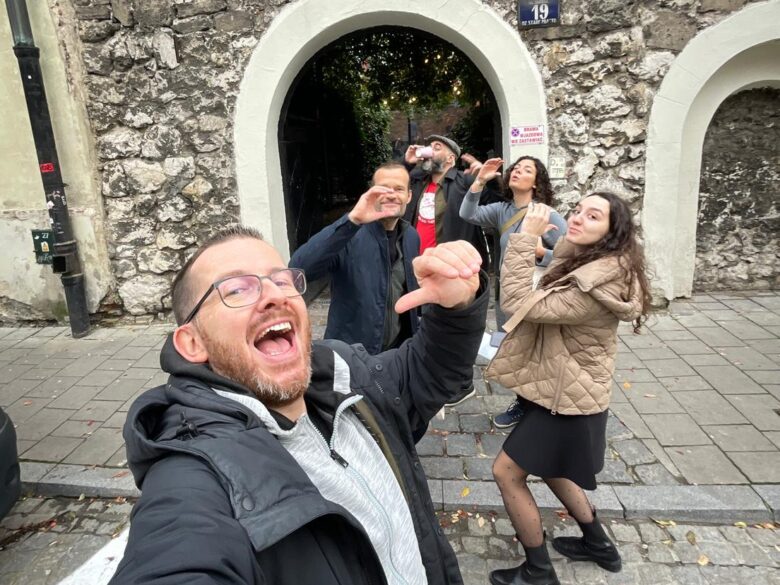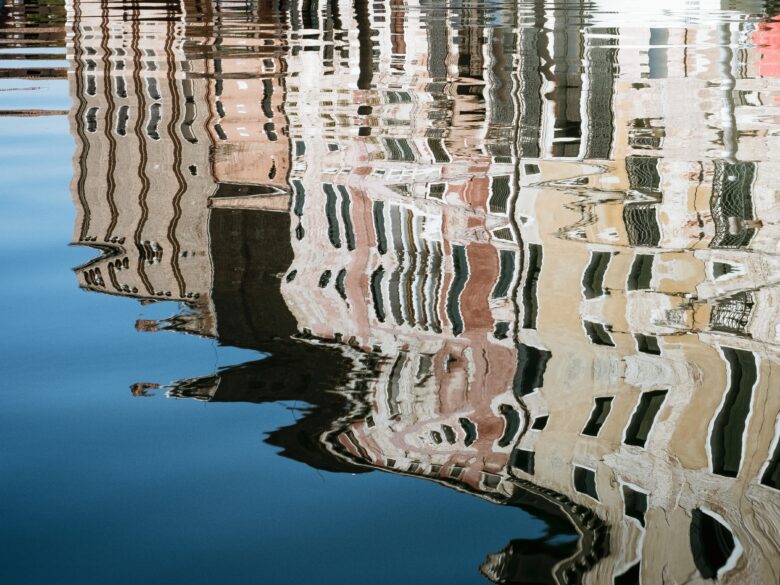Today an interview with Damian Byrne, Spotter for our Dublin cityblog. We had a few nice Guinnesses with him in Dublin just a few weeks ago.
Can you tell us a bit about yourself?
I’m not actually a Dubliner, as I grew up in the neighbouring county of Wicklow (which is really beautiful by the way if you get the chance to visit.). But I went to university in the city and have lived here permanently since 1997, so the northside suburb of Drumcondra is very much where I consider home at this stage.
I worked in publishing and as a freelance writer for several years, before giving up any street-cred I had left by training as a lawyer. I also do a bit of teaching/lecturing on the side.
I really just enjoy the simple things in life – going for pints with my mates; reading a good book; swimming in the sea; or going on long cycles to places like the Wicklow mountains.
How do you like being a Spotter?
I enjoy being a Spotter. To be perfectly honest, there is large dollop of egotism involved – I think I have good taste and judgment, and if I have certain knowledge that could be useful to others, then why not share it?
The best thing about being a Spotter is that it has caused me to look at my city with fresh eyes, and I have come to embrace it more as a result. I have not always been all that enamoured with Dublin. In fact, during the brash Celtic Tiger years I felt a real disconnection from the place. In the past few years I have tried to redress this and recognise the many positive aspects to the city. Being a spotter has definitely helped with this process, and I find myself talking up the city now and taking pride in the places I recommend in a way that I would never have done five or ten years ago.
In any case, I am a bit of a daydreamer, and exploring the city on foot with no real purpose or plan is one of my favourite pass-times. Some of my favourite spots have been chanced upon randomly in this fashion.
Why Dublin?
Dublin probably lacks standout sights or attractions. I’ve never seen the Book of Kells or taken the Guinness tour, and the galleries and museums are pretty average (there are two exceptions – the Chester Beatty Library and the Hugh Lane Gallery. The latter includes a reconstruction of Francis Bacon’s old studio, which I find endlessly fascinating.)
However, the city makes up for this with character and atmosphere, and I would just explore the city by foot or bicycle and take in the people and surroundings. There are some wonderful parks (I particularly love the National Botanic Gardens in Glasnevin), and beautiful Georgian squares and architecture (for example, Mountjoy Square on the northside, which is often overlooked). If time permits, take the DART along the coast and stop off at some of the attractive seaside towns nearby.
Of course, the pubs have to be sampled, but watch out for the fake “traditional” pubs that now blight the city centre and stick to the ones recommended on Spotted by Locals.
Its a cliché to write off Temple Bar as a tourist trap, but the quieter end towards Christchurch is one of the most attractive parts of the city.
One thing I wouldn’t really bother with is shopping – Dublin’s main shopping thoroughfares are barely distinguishable now from any British high street.
Which prejudices about Dublin are true? Which ones are not?
I overheard this American tour guide in Temple Bar recently telling his audience to go to the pub that night because “the Irish don’t just go to the pub at weekends, they go every night, and drink 13 pints, and get up for work the next day.” The audience loved it, but its complete nonsense. The city’s pubs and clubs are in fact eerily quiet now much of the time. The economic crisis is obviously a major factor in this, but the pub trade had already been in steep decline since the smoking ban in 2004. The pubs were much better with smoke.
It is still true to say, however, that the locals are generally a friendly and gregarious bunch, particularly with a few pints on board.
It also happily remains the case that the Guinness tastes better than you will experience anywhere else in the world. Some things never change.
What is the most popular neighborhood to live in Dublin at this moment?
The area around Ranelagh/Portobello has been referred to locally as the “meusli belt,” and is popular with liberal, middle-class professional types who like to go to farmers’ markets at weekends, get very excited about things like growing their own carrots, and think bottle-feeding is a form of child abuse. In other words, it is Dublin’s micro-version of Prenzlauer Berg or Primrose Hill.
Nearby Dublin 8 is favoured by the younger, hipper crew who like cycling around on fixies or classic racers, trawling for fashion bargains in vintage or charity shops, and boozy nights out in Camden Street joints like the Bernard Shaw or Anseo. However, Williamsburg it ain’t.
Can you describe a perfect day in your city?
Let’s imagine it’s a sunny day – we do get them occasionally. I like cycling, so I’d get up early and cycle from my home in Drumcondra up to Howth and around the peninsula. The views from the summit – looking across Dublin Bay towards the Wicklow Mountains – are superb. The journey back would take me by the lovely Bull Island and Clontarf promenade.
I would then take the Dart to the southside suburb of Sandycove and brave the freezing cold waters of the Irish Sea at the 40 Foot. Which would give me an appetite, so fortunately Dublin’s best seafood restaurant, Cavistons, is just around the corner for lunch.
Back in town later, I’d get my best mates together (all three of them) for a cheap beer in the sunshine at the Pav in Trinity College. We’d then grab a Dublin Bicycle and make our way up to Camden Street for dinner in Camden Kitchen. We would finish off the night with several pints of Guinness in my one of my favourite city centre haunts – Fallons, Grogans, Nearys, I’m easy – followed by some embarrassing “uncle at a wedding” dancing in the Dice Bar in Smithfield.
Phew, I’m wrecked after all that!
Is there something else you want to share?
With all the negative stories in the international media about Ireland and it economic woes, this may seem like a bad time to visit Dublin. In some ways it is – many people are suffering badly, and there is a lot of fear and trepidation about. There are some upsides, however: the live music scene is thriving, and the availability of empty properties and reduced costs has facilitated the opening of several new independent gallery spaces and arts projects; and many are quietly relieved that the competitive frenzy of the Tiger years is behind us.
Anyone who last visited Dublin during the boom years and overheard all the mind-numbing conversations about property values will notice that a new competitive sport has broken out amongst Dubliners – boasting about how poor you are. Fancy cars and designer labels impress nobody anymore, it’s all about that €7 bargain top you snagged in Penneys.
Check out all Damian Byrne’s articles and the other interviews with our Spotters.

![10 Unique Flea Markets in Europe [2024 Update!]](https://www.spottedbylocals.com/wp-content/uploads/midnightbazar-munich-by-ayla-amschlinger.jpg)




